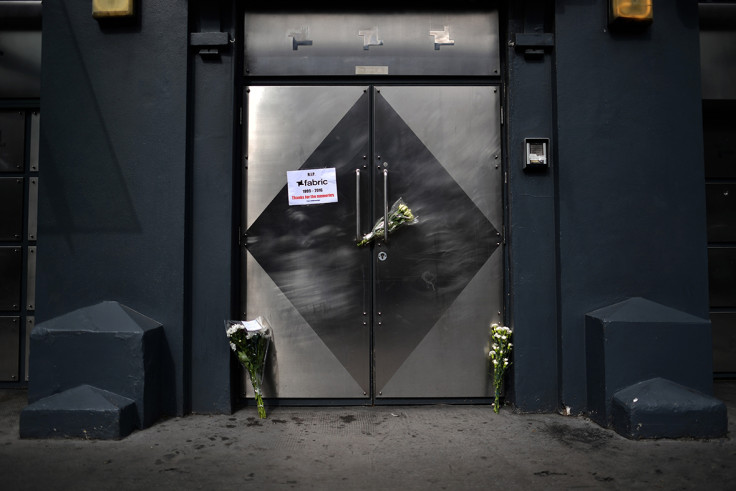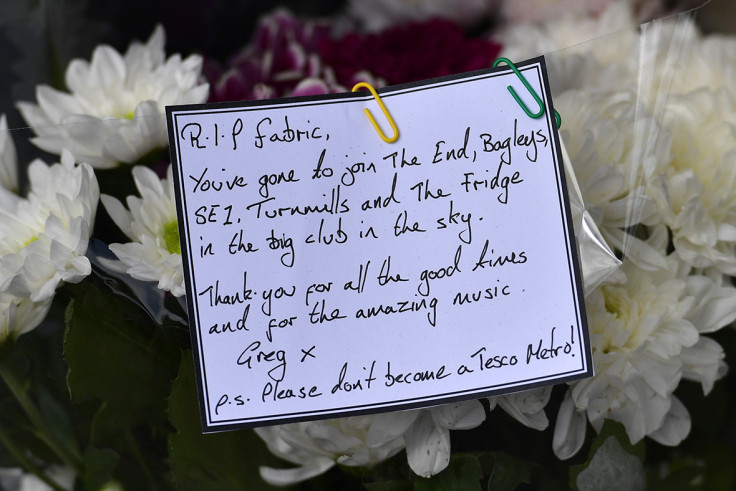Fabric: World of music reacts to 'disgraceful' decision to close London nightclub
Islington Council rules iconic club was 'grossly inadequate' in stopping drug use inside venue.
The world of music has reacted angrily to Islington Council's decision to close the world-famous London nightclub Fabric following the drug-related deaths of two people. The decision was made not to renew its licence after the council ruled the club's reactions to obvious drug taking was "grossly inadequate", including lack of security and staff intervention.
In its ruling, the council states that undercover officers at the club witnessed open drug use and that searches on entry were "inadequate and in breach of the licensing conditions".
Documents from the Metropolitan Police, released to the licensing committee, also described the club as a "safe haven" for people to take drugs.
The documents added: "The failings of the management have led to an environment where illegal drug taking has become acceptable. If the premises have been permitted to remain open and operating in its current form, then there is a strong possibility that further drug related deaths will occur."
The decision arrived following a long hearing at Islington council which lasted until the early hours.

The 2,500 capacity venue located in central London's Farringdon has been shut since 11 August after its license was temporarily suspended following the death of one 18-year-old on 25 June and a second on 6 August, who died after collapsing outside the venue at around 8.20am. In total, there have seen six drug related deaths at the club since it opened in 1999.
In a statement, Fabric said they are "extremely disappointed" with Islington Council's decision to revoke their license. They added: "This is an especially sad day for those who have supported us, particularly the 250 staff who will now lose their jobs. Closing fabric is not the answer to the drug-related problems clubs like ours are working to prevent, and sets a troubling precedent for the future of London's night time economy."
DJs and other artists who have played at the venue have responded their disappointment at the closure, while also lamenting how many clubs have shut recently in the capital.
Our culture has been torn apart with the closing of @fabriclondon & every club with serious history & importance in London #FabricReview
— Chase & Status (@chaseandstatus) September 7, 2016
Sending love to the entire @fabriclondon family for all you've done over the years. I can't put into words what it's meant to all of us ðŸ™â¤ï¸
— Andy C (@ANDYC_ram) September 7, 2016
#fabric this isnt rly about drugs or door searches
— Bok (@bok_bok) September 7, 2016
Another step twrds a city full of extortionate, empty properties & all-privatised space😟😡
devastated to hear @fabriclondon is being shut down.never DJed in a club with such high standards and proper rules.wrong club @SadiqKhan :(
— Rob da Bank (@RobdaBank) September 7, 2016
I'm at a loss for words for what's happening in this city. Absolute love and respect to everyone I've ever worked with at Fabric nightclub.
— Benji B (@TheRealBenjiB) September 7, 2016
This was all too predictable. Don't think @SadiqKhan @MPSIslington or @metpoliceuk had any intention of working with the club #fabricreview
— Sasha (@sashaofficial) September 7, 2016
Islington council should hang their heads in shame. Revoking @fabriclondon license is absurd. Properly developers the only winners here.
— Groove Armada (@GrooveArmada) September 7, 2016
Respect. Love. And Solidarity with all who made Fabric the legend that it will always be.
— The Black Madonna (@blackmadonnachi) September 7, 2016
Pure sadness about Fabric. London is being ruined right now.
— Four Tet (@FourTet) September 7, 2016
The closure of the club came despite a huge campaign to save it, including an online petition which attracted nearly 150,000 signatures. Labour MP for Islington South and Finsbury Emily Thornberry also backed keeping the club open: She said: "As a parent, my heart goes out to the family and friends of anyone who has lost loved ones at such a young age, with lives ended before they have even begun. But we must guard against the assumption that dangerous drug use would cease simply if we were to close a nightclub like Fabric."
A Met Police spokesperson said: "Police felt the need to act due to concerns about the safety of those attending the club due to the supply of class A drugs in the venue and the recent deaths of two young men linked to the club.

"We support this decision made by Islington Council's licensing committee. London has a world-renowned night-time economy and people should be able to enjoy it safely, without concerns of serious crime. The Met is committed to working in partnership with those responsible for this sector to ensure that this happens."
Mayor of London, Sadiq Khan, who the popular online petition was sent to, said: "London's iconic clubs are an essential part of our cultural landscape. Clubbing needs to be safe but I'm disappointed that Fabric, Islington Council and the Metropolitan Police were unable to reach agreement on how to address concerns about public safety.
"As a result of this decision, thousands of people who enjoyed going to Fabric as an essential part of London's nightlife will lose out. The issues faced by Fabric point to a wider problem of how we protect London's night-time economy, while ensuring it is safe and enjoyable for everyone. Over the past eight years, London has lost 50% of its nightclubs and 40% of its live music venues. This decline must stop if London is to retain its status as a 24-hour city with a world-class nightlife."
© Copyright IBTimes 2025. All rights reserved.




















